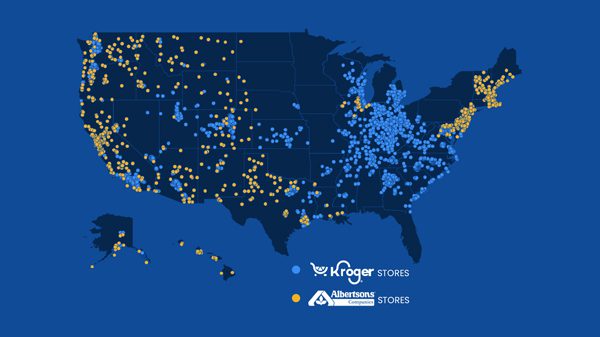The Kroger Co. BB #:100073 and Albertsons Companies Inc. BB #:193326 released the list of stores they plan to divest if their $25 billion acquisition plan is approved.
The proposal calls for the stores to be sold to C&S Wholesale Grocers, LLC BB #:137315.
Of the 579 stores to be divested in the plan, 485 are under Albertsons’ banners.
Western states will see the most stores divested, as Washington leads with 124 stores, followed by Arizona (101), Colorado (91), California (63), and Oregon (62).
The sale includes two distribution centers in Arizona, two in Colorado, and one each in Utah and Washington.
“You’ll see that the 579 stores and other assets to be divested were thoughtfully chosen to allow C&S to succeed in the geographies and maintain – if not increase – the level of competition that consumers benefit from,” Kroger said in a statement released July 9.
Earlier this year, the Federal Trade Commission sued to block the merger, saying, “The proposed deal will eliminate fierce competition between Kroger and Albertsons, leading to higher prices for groceries and other essential household items for millions of Americans. The loss of competition will also lead to lower quality products and services, while also narrowing consumers’ choices for where to shop for groceries. For thousands of grocery store workers, Kroger’s proposed acquisition of Albertsons would immediately erase aggressive competition for workers, threatening the ability of employees to secure higher wages, better benefits, and improved working conditions.”
Kroger countered the FTC, saying, “Contrary to the FTC’s statements, blocking Kroger’s merger with Albertsons Companies will actually harm the very people the FTC purports to serve: America’s consumers and workers… The FTC’s decision makes it more likely that America’s consumers will see higher food prices and fewer grocery stores at a time when communities across the country are already facing high inflation and food deserts.”



